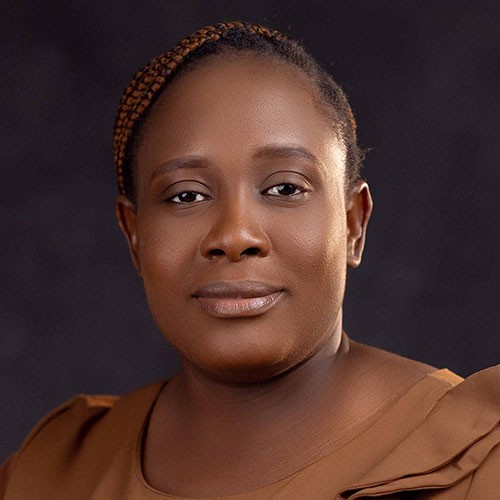
In two of Africa’s economic heavyweights, Nigeria and Kenya, public sector financial management is undergoing a major transformation. Their shift from cash-based accounting to an accrual system using International Public Sector Accounting Standards (IPSAS) will improve value for money, enhance public scrutiny and position finance at the heart of decision-making.
The pioneer
Nigeria’s federal government adopted IPSAS in its entirety in January 2016, and ‘significant strides’ have since been taken, according to Bashir Suleiman Zuntu, accountant general of Nigeria’s Kaduna state.
As each of Nigeria’s 36 federal states can set its own implementation timeline, progress varies. Many have adopted cash IPSAS, but only a few have moved on to accrual IPSAS. Kaduna has acted as a trailblazer by adopting accrual IPSAS in 2016.
‘It underscores government’s resolve to enhance fiscal discipline’
‘This bold step underscores the state government’s resolve to enhance fiscal discipline, improve decision-making and align with global best practices,’ Zuntu says.
Implementation has resulted in better asset management, enhanced revenue recognition and improved expenditure tracking. It has enabled the state to recognise and account for liabilities such as pension and gratuity obligations.
Full accrual
Similar benefits are expected in Kenya. While the country’s journey towards accrual-based accounting in the public sector began a decade ago, the National Treasury’s announcement in October 2024 that public sector entities will transition towards the IPSAS accrual standards is a landmark decision.
The shift will take place over a three-year period, with financial statements for the year ending 30 June 2025 being prepared on an IPSAS accrual basis, and full compliance required by June 2027. Since 2014, government ministries, departments and agencies, along with county executives and assemblies, have been applying the transitional IPSAS cash-based standard.
‘It will allow government to present a fuller picture of its financial position’
‘The IPSAS journey began 10 years ago but now, having had the approval from the topmost organ in the country, the entire public sector will be reporting on IPSAS accrual basis,’ says Christine Nthiga FCCA, an accounting standards specialist at the country’s Public Sector Accounting Standards Board (PSASB) and winner of the East Africa heat of the ACCA Public Sector Advocacy Awards in 2024.
A milestone
Chris Kiptoo, principal secretary at Kenya’s National Treasury, calls the reform ‘a milestone in Kenya’s efforts to align its financial reporting with global standards’ and says it is key to improving financial management and enhancing the accuracy of public sector financial reports. ‘It will allow the government to present a fuller picture of its financial position, including key obligations such as pending bills, pension liabilities and public debt, alongside its receivables, fixed assets and natural resources.’
‘This is not a trivial exercise’
Andrew Kubo FCCA, a consultant with the Institute of Public Finance, a Nairobi-based thinktank, says IPSAS adoption will address one of the biggest problems in Kenya’s public sector: pending bills. ‘These are bills that have not been paid over the last financial year, so it has been a menace for this country,’ he says. ‘Adoption of accruals accounting will help us understand where the bills are coming from.’
He adds that the move will promote transparency in local government accounts so that ‘the local person can really interrogate them as an investor would a financial statement for a blue-chip company’.
Resistance
However, high implementation costs, insufficient technical expertise and the need for extensive capacity building in public sector finance teams remain barriers to implementation of IPSAS across Kenya. There is also resistance to change among some officials who consider IPSAS adoption a bureaucratic exercise that adds no value to their work, according to Kubo.
But he adds: ‘We are seeing a lot of actors coming on board to try and help the government in fast-tracking implementation. Again, there are challenges. This is a whole new mindset shift that will take a bit of time.’
‘The slow pace of valuing legacy assets is a significant hurdle’
Nthiga says: ‘The assets we have in the country are not being reported on and now need to be brought into the financial statements. It is not a trivial exercise.’
Challenges also persist in Nigeria. ‘The slow pace of identifying and valuing legacy assets remains a significant hurdle,’ Zuntu says. He adds that delays in engaging actuaries to value pension and gratuity obligations have hindered the accurate recognition of these liabilities.
Capacity gaps
One of the biggest challenges of all in both countries is the need to train public sector accountants. ‘Capacity building is a major challenge, as many public sector accountants and government officials require training to understand and implement IPSAS effectively,’ Zuntu says. The Nigerian government has been rolling out training programmes, enhancing technology and systems, and raising awareness among stakeholders, including citizens and businesses.
‘Entities reporting on accrual basis will be able to transfer their knowledge’
In Kenya, most of the training in accrual accounting is being provided by PSASB, in collaboration with the National Treasury. ‘The main challenge currently is the capacity of accountants preparing reports for public sector entities on cash basis [to move to accrual basis],’ Nthiga says. ‘We have capacity gaps, but other entities that have moved to accrual basis will be able to transfer their knowledge and experience.’
The accrual push comes at a time when the Institute of Certified Public Accountants of Kenya has set 1 January 2027 as the start date for mandatory sustainability reporting for public interest entities as part of the country’s adoption of IFRS Sustainability Disclosure Standards.
Kubo says the adoption of sustainability reporting is ‘one of those key fundamental items, parameters, anchors, within the implementation of accrual accounting and IPSAS in Kenya. But the challenge is the capacity of the people who are now meant to do this work. We must have that capacity built along the way. It is one package.’
Listen and learn
Register to listen on demand to ACCA’s Virtual Public Sector Conference to learn more about issues affecting members in the sector, including ‘A new frontier of sustainability reporting in PFM’.
See also the AB article ‘Public sector’s productivity puzzle’

